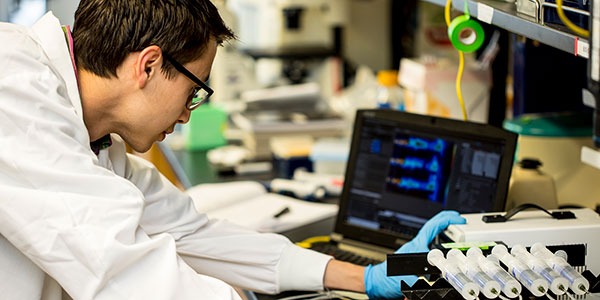Qualifying Examination
The Qualifying Exam, taken by the end of the second year, is designed to evaluate a student’s scientific knowledge, research potential, oral and written skills, creativity and time management. The exam requires a written and oral presentation based on the student’s research progress and a NIH Exploratory/Developmental Research Grant Award (R21) proposal. The exam, overseen by a faculty committee, determines whether the student should continue in the doctoral program.
General Examination
The General Examination is used to determine the soundness, significance and originality of the student’s research project, as well as test the clarity and thoroughness of the student’s understanding. The examination provides an opportunity for the student to justify his/her research vision, describe the initial experimental plan, and present preliminary data demonstrating feasibility of the project. Passing the examination advances the student to Ph.D. or doctoral candidacy status.
The General Exam should be completed as early as possible, preferably about one year after passing the Qualifying Examination. The Supervisory Committee will expect sufficient preliminary research to assess the likelihood of successful completion of the Ph.D.
Final Examination
The final examination occurs when the Supervisory Committee agrees that the student’s research is complete. The examination is the oral defense of the student’s doctoral dissertation. The dissertation provides evidence that the student can innovate an original investigation, recognize an important problem, acquire the data to answer the questions posted within that problem and extend the results of the answered questions to other problems of significance.


